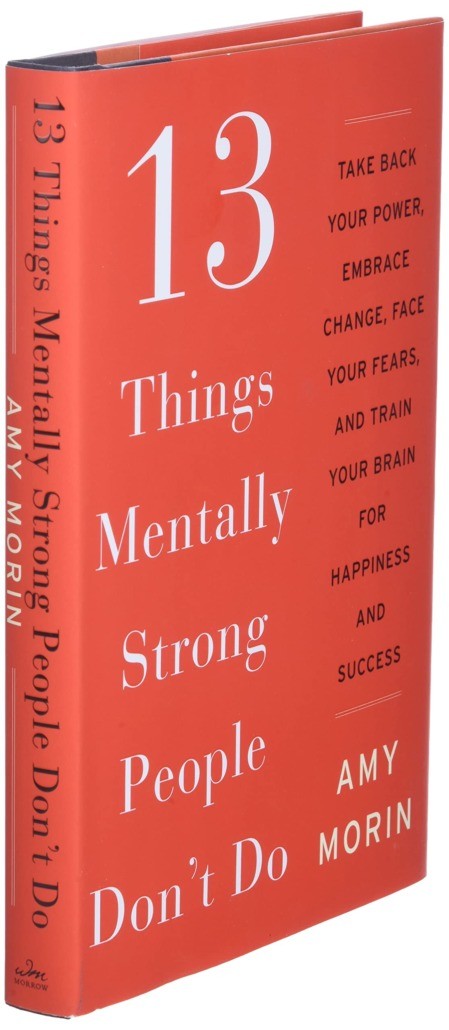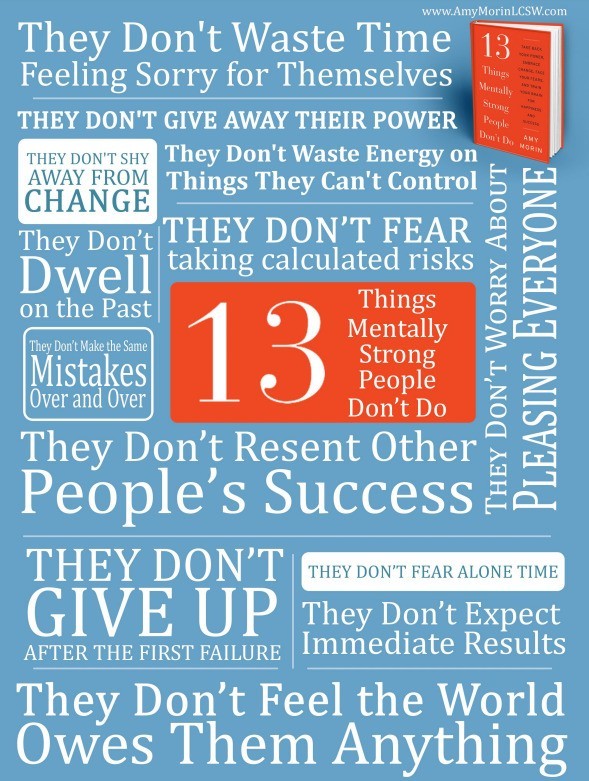
“Although the world is full of suffering, it is also full of the overcoming of it.” – Helen Keller
It is not lost on me that we are all suffering to some degree as we watch war break out between Russia and Ukraine. While it’s easy to calculate war’s monetary and physical costs, the mental and emotional toll is far more reaching and damaging.

Add to that the current economy, pandemic, and the changing professional landscape. There has never been a greater need in our lifetime to develop resilience.
Of course, the phrase we’re all used to hearing is, “Think positive.” However, let’s face it, 100% positivity 100% of the time isn’t how we’re all built. But I believe we CAN “Think strong” and overcome the suffering and mental weight that pulls on us daily. I recently came across a book, 13 Things Mentally Strong People Don’t Do by Amy Morin, which offers three steps to start thinking strong.
I’ve spent much time blogging about strengths. Strengths are defined as talents or recurring thoughts, patterns, and feelings. When we add practice and near-perfect performance to our talents, we turn them into Strengths. Amy Morin uses those same foundational elements to help us think strong. When it comes to building resilience and avoiding bad habits, thinking strong can keep us from sabotaging our success and increase our ability to develop Strengths.
It’s important to note all of these are intertwined with each other and understanding how each impacts the other is required to reach your full potential.
THOUGHTS
Start by identifying unreasonable thoughts and changing them out with more realistic thoughts.
Psychologists might give this process a fancy name like “cognitive restructuring” or “reframing,” however it’s a simple process of taking a thought that causes stress or emotional response and balancing it with rational thinking. For example, you might be terrified of earthquakes. Yet you live in the Southern United States where they rarely, practically never happen. But the thought of being in an earthquake makes you sweat, your heart race, and you want to hide under a table in complete anxiety and panic. However, you remember where you live before you actually do that and there’s no logical reason to hide under a table or be afraid of an earthquake at the moment.
Only when your brain starts working with your emotions can you get past that moment of stress and away from the bad habits and negative behaviors keeping you from your greatest potential.
These fears and stresses live within us. Maybe not to this extreme, but they are there. There are many tools and resources out there to help you practice flipping the switch on your stressors. Here are just a few:
- Breaking the Stress Cycle featuring Active Insight™ by Andy Bernstein
- How to Reframe Situations So They Create Less Stress by Dr. Elizabeth Scott
- Insight Timer featuring mindfulness, positive self-talk, meditation, and more
BEHAVIORS
Behave positively regardless of what’s happening.
Being a Strengths Champion means understanding that Strengths was founded in Positive Psychology. However, this doesn’t mean it’s about being positive all of the time. It does mean it’s primarily focused on building up a person’s assets rather than their defects. But living with your Strengths and being mentally strong is not about positive thinking all the time. In fact, thinking positively too much can be just as adverse as negative thinking can be.
That being said, we can choose to behave positively despite our circumstances. It’s easy to respond positively when life is going our way. If you can practice doing this even through life’s challenges, here are some benefits:
- Increased resilience to everyday stress and more prominent crisis.
- Improved life satisfaction and confidence.
- Enhanced productivity and performance at work.
Practicing positive behavior even through adversity is resiliency. Research shows that individuals who are thriving in their well-being (combination of physical and mental resiliency) are 38% less likely to have unplanned sick days and 30% less likely to quit.*
Mentally strong people, while not always positively thinking, through positive behavior can create a better life and a better workplace.
EMOTIONS
Be in control of your emotions rather than letting them control you.
There’s a myth about mental strength that it means ignoring your emotions. Ignore that myth. To be mentally strong means to be emotionally aware. Combined with behavior, you can become emotionally intelligent and even understand how your emotions are impacting those around you.
People who “think strong” have emotions.
Let me repeat that…
People who are mentally strong are emotional people.
Being mentally strong doesn’t mean you’re a robot, tough, never cry, never get angry, sad, or never feel anything ever. It just means you have relinquished the bad habits that allowed your emotions to control you and your behavior.
What are those bad habits? Now that you have the 3 steps to “think strong” it’s time to dig into that list. Download the list from Amy Morin’s website below and I highly recommend you check out her book for a more in-depth read around these steps, bad habits, and good habits.
Consider these questions about your strengths while you read her book:
- How can your Strengths help you flip the switch on your stress? (Name the Strengths you will use to do these.)
- How can your Strengths help you practice positive behaviors in the face of negative circumstances?
- How can your Strengths help you take control of the emotions that tend to control you? Or how can your Strengths help you in situations when emotions tend to control you?
13 Things Mentally Strong People Don’t Do List
Conclusion
In closing, I know the image for this blog shows a woman who is happy with a shadow of a superhero. That’s a representation. Superheroes, while they may look and even act strong most of the time, are not perfect and are not perpetually happy. The cape is hung up at the end of the day and a choice is made to continue. These steps and this list are a choice. Thinking strong requires continual maintenance, and no one is perfect or free from having a bad day.
“When you become mentally strong, you will be your best self, have the courage to do what’s right, and develop a true comfort with who you are and what you are capable of achieving.” – Amy Morin






